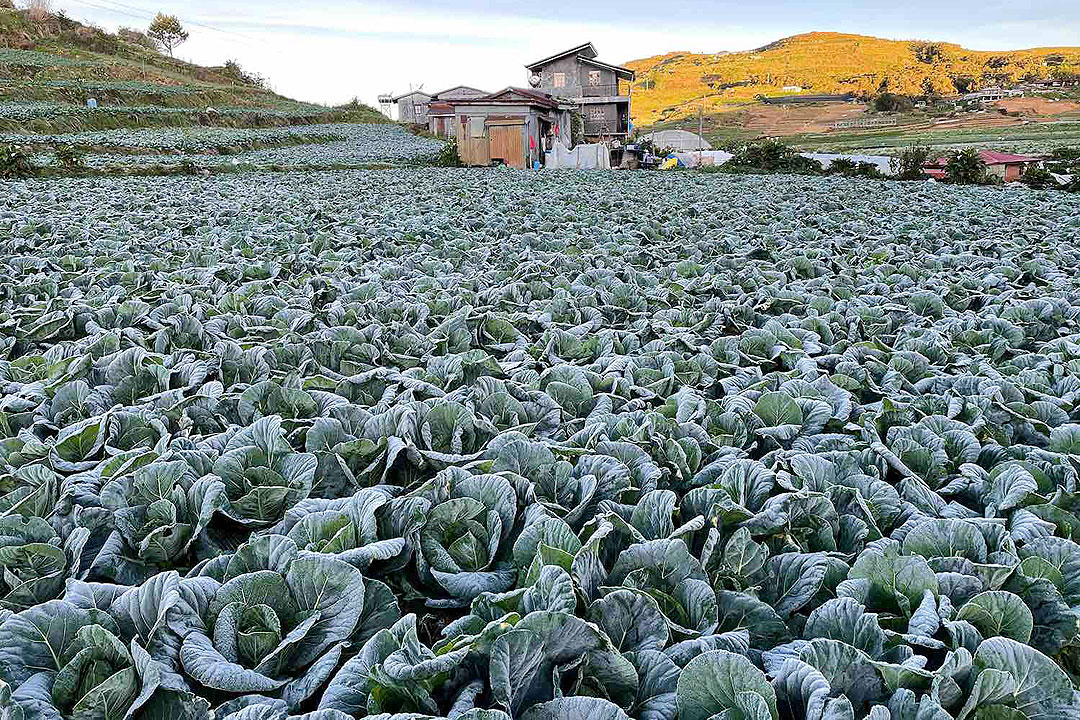THE GOVERNMENT is not doing enough to deter the smuggling of farm produce, vegetable farmers in Benguet, a major growing area supplying Luzon, said on Tuesday.
Agot Balanoy, spokesman for the League of Associations at the La Trinidad Vegetable Trading Areas, said prosecutors must follow through with charges against smugglers and their protectors, who have yet to be identified, instead of simply raiding markets and retailers.
Testifying before the Senate Committee of the Whole, which is investigating the matter, she said the smuggling of farm produce has been affecting markets since 2001.
She added that the Department of Agriculture (DA) typically does not act without the filing of complaints and the submission of evidence.
Ms. Balanoy said that in September, the DA took a month to act on smuggling complaints aired in the media by the vegetable growers, and only resorted to market raids and confiscations without taking further action. She added that smuggled goods continued to appear in the markets in October and November, forcing her association to elevate its complaint to Senate President Vicente C. Sotto III.
Farmers are likely to grow other crops if smuggling continues, according to Ruben E. Paoad, of the agriculture committee of the Benguet provincial council. If production from the province drops off as a result, he added, import dependence will rise.
“It would be good if the imports were legal, but the problem is that we know they are illegal,” he said.
“The farmers are affected, at the same time the government is being deprived of revenue,” he added.
Samahang Industriya ng Agrikultura President Rosendo O. So said during the hearing that the DA does not appear to coordinate its actions with the Bureau of Customs (BoC).
He said DA and BoC estimates of import volumes do not match, suggesting a disparity between goods officially imported and goods that were smuggled.
Agriculture Assistant Secretary for Regulations Liza G. Battad said beginning this year, the DA proposes to improve its collaboration with the BoC, particularly on the matter of inspecting goods after they have been admitted into the country.
The government performs two levels of border inspections. Customs and agriculture personnel conduct a spot check with 10% sampling on agriculture imports at the port of entry.
The second border inspection is conducted at DA-accredited cold storage warehouses, in which goods undergo 100% physical examination via x-ray.
Customs Commissioner Rey Leonardo B. Guerrero said seizures of agriculture products totaled 80 in 2019, 309 in 2020, and 172 in 2021, while cases filed with the Justice department numbered 55, counting from 2019.
“Eighty-six of the total apprehensions for 2021 are covered by 29 criminal complaints filed from January 2021 to present,” Mr. Guerrero said at the hearing, noting that “one case covers multiple apprehensions.” Twenty-one cases involved violations of Republic Act 10845 or the Anti-Agricultural Smuggling Act.
Asked by Senator Panfilo M. Lacson, Sr. why smugglers manage to elude government monitoring, Mr. Guerrero said: “there is inadequate space at the port to conduct full stripping of dry and refrigerated containers.”
“Due to the pandemic, the inadequacy of manpower of port operators, shipping lines, and even consignees themselves, continues to be a problem,” he added, noting that the BoC lacks the capacity and resources to do more.
The BoC’s police force currently has only 523 members, augmented by 100 personnel from the Philippine coast guard, to guard 17 major ports and 39 sub-ports.
Of the 523 customs police, 166 are assigned to the fuel-marking project while 74 are detailed to x-ray inspection. — Alyssa Nicole O. Tan
